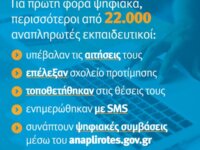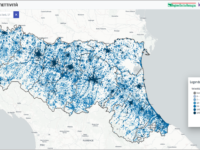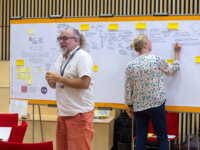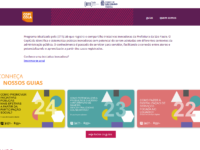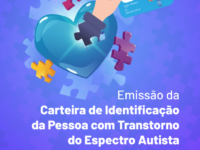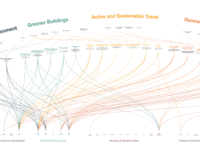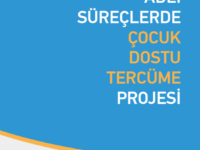The Greek education system needs about 50,000 substitute teachers every year to staff schools. In order to begin teaching, these teachers have to travel to their district education headquarters to sign their one year contract with the state. Through the Substitute Teachers Platform, the contract is signed digitally, avoiding unnecessary travelling and allowing for the necessary information systems of the public administration to be updated in an interoperable way. This innovation thus saves…
Innovation Tag: People Networks/Communities of Practice
Emilia-Romagna’s Digital Agenda led a significant innovation process for public administration decision-making. The process resulted in a co-design phase with local administrations to structure and publish online the first geo-referenced regional Observatory on ultra-broadband connectivity in Italy. Multi-stakeholder participation made it possible to identify and highlight the various strengths and weaknesses of the tool, enabling its optimisation.
The Local Wealth Building Challenge Fund is designed to provide financial and non-financial support to develop new products and services to tackle challenges. One aspect of this Challenge Fund which is unusual is the focus on developing innovations that will be procured by the challenge holder, providing additional incentives and focus. Public and third sector organizations often have issues that can be solved not by getting new skills or more workers, but by being innovative. The Challenge…
CopiCola tackles the problem of knowledge loss in the public sector by investing in the registration of initiatives that can inspire civil servants, facilitate processes and reduce risks. The programme identifies, records and disseminates innovative practices with the potential to be adopted in different public management contexts. Knowledge is passed from civil servant to civil servant, facilitating the connection between actors and enhancing learning from the cases recorded.
Implemented in 2021, the Identification Card of the Person with Autism Spectrum Disorder, Carteira de Identificação da Pessoa com Transtorno do Espectro Autista (CIPTEA), is a digital and/or physical document, which aims to facilitate and enable people with autism to receive comprehensive care and priority care to public and private services. The Card is a fundamental instrument to guarantee rights, since it avoids constraints due to the different characteristics and behaviors that are not…
„Gemeinsam Digital: Berlin“(Together Digital: Berlin) combines the digital and smart city strategies. We define smart as solving future challenges in creative, open, experimental and participatory ways. This strategy helps to establish new work approaches, agile methods, competence building, and a systematic knowledge transfer between the administration and its inhabitants. By aligning technologies, methods, and cultural processes, it supports existing strategies to reach their respective…
Achieving carbon neutrality requires collective action involving businesses and residents and encouraging them to participate in local governance processes. The most immediate challenge to enable collaboration is to effectively communicate the multiple lines of actions and operational objectives. The Visual Action Plan gives a holistic overview helping public officers to collaborate internally and externally.
The project is aimed to prevent the loss of the rights of refugee children in Türkiye due to language and translation difficulties in judicial processes. Children involved in judicial processes, translators, judges-prosecutors and other auxiliary judicial staff have benefited very much from the project. For the first time, the capacity of translators has been strengthened and the secondary trauma risks of children have been mimized.
Case Study
A National platform for the prevention of violence that involves children “I protect you”
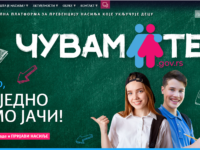
Online platform “I protect you” enables a centralised approach to combating violence. It encompasses work of 7 ministries in one national online platform and improves access to information, training, as well as prevention and intervention tools. By integrating all aspects of prevention and tools for combating violence, it raises the capacity of children, teachers, parents through specifically designed free online training, as well as institutions to recognize and quickly address violence.
Finland’s Ministry of Finance set a target for all public services to be available digitally by 2023 as part of its Program for Promotion of Digitalisation. The 'Co-designing future digital services' project is a new way of providing free expert mentoring for public sector organisations in developing their digital services, with an emphasis on collaborative learning. The aim of the project is to ensure that future digital services are designed to be human-centered and of high quality.

